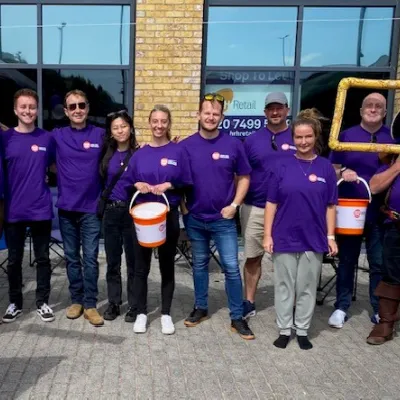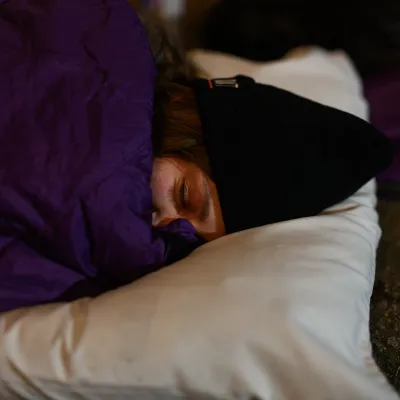Pregnancy can be challenging at the best of times. But for women who are pregnant and homeless – or facing impending eviction – it’s especially difficult.
Last year, Dispatches and the Royal College of Midwives found that a staggering 99.7% of midwives had seen a mother who was homeless during a six-month period. Two-thirds of midwives also felt that the number of pregnant women facing homelessness was higher than ever before.
As more expectant mothers are finding themselves without a roof over their head, the right support has never been more vital. This not only ensures the health and well-being of the mother but of her child as well. We’re here to guide you through your options and the services available to help you through this crucial time.
Understanding your pregnancy options
For many homeless women, pregnancy is not planned. An unexpected pregnancy can be a huge cause of stress but understanding your options can help you to decide the route that’s best for you. Your pregnancy options include continuing with the pregnancy and becoming a parent, continuing with the pregnancy and arranging for your child to be adopted or fostered, or ending the pregnancy through termination.
You’re entitled to receive impartial support from health and support workers. They will help you make your decision in a judgement-free environment. This support can be accessed through GP services and sexual health clinics. Alternatively, you may be signposted to support services through charitable organisations.
Always remember that your choice is your own and no one else should influence your decision.
Terminating your pregnancy
If you feel that termination is right for you, you can self-refer to various abortion providers or get a referral from a sexual health clinic or GP. Waiting times do vary but shouldn’t be longer than two weeks. You can also receive support from a trained pregnancy counsellor if you wish.
Most abortions in the UK are carried out before 24 weeks of pregnancy, but sometimes, it can be difficult to know if you’re pregnant early in your term. Many young women with poor nutrition, irregular menstrual cycles or other health issues present later.
That means it’s important to contact a sexual health clinic, GP, midwife or charitable support provider as soon as you suspect you may be pregnant. This is especially true if you're not ready to have a child.
Giving your child up for adoption or fostering
You might not want to have an abortion for whatever reason but are still not ready to be a parent. In that case, giving your child up for adoption or fostering may be the right choice for you.
This can be a difficult decision to make but you can get further advice and support to help. You can contact the Children’s Services or Social Work departments of your local authority or a voluntary adoption agency. You may also be able to arrange discussions with social workers through your ante-natal appointments or by contacting Citizens Advice Bureau.
Remember that you’ll likely be unable to see your child after you have given them up for adoption or fostering. You can request that the child’s adoptive or foster parents provide you with regular updates on how your child is doing, though.
Once the child turns 18 (or 16 in Scotland), they may choose to see their birth certificate. This way, they can learn the name of their biological parents to get in touch with you or other family members. You can let them know that you’re happy for them to do this through an intermediary.
Becoming a parent
If you choose to keep your child, then you will need to secure suitable accommodation in time for the delivery. This is crucial for the well-being of both you and your newborn child.
New guidelines mean midwives and maternity support workers will help homeless pregnant women. If they suspect you may be pregnant and homeless – or about to be made homeless – they will enquire about your housing situation during your appointment. With your consent, they will also refer you to housing services. Charitable organisations can also provide support in finding short-term and long-term accommodation.
Mothers who are homeless, in temporary housing or living in poor conditions will be provided with early intervention. They’ll also receive additional support in preparation for their unborn child’s arrival. Your needs will be assessed, and you will be monitored by maternity services and Children’s Social Care. They’re not there to judge you but to ensure all the necessary arrangements are made for your child’s welfare.
Housing options if you’re homeless and pregnant
If you’re pregnant, you’re considered a priority need for housing. If you are currently homeless or are facing homelessness within the next eight weeks – including if you have received a valid 21 notice from your landlord – you should make an application to your local council. Charitable organisations will be able to help you with this. You may need to include evidence of your pregnancy in your application. Your midwife, GP or other healthcare professional can provide this.
The council will then carry out an assessment of your housing needs. This will include understanding why you are facing homelessness, what housing is suitable for you and any support you may require. This information will be used to draw up a personal housing plan. If you are under 18 years of age, the council will also refer you for a social services assessment.
You will be provided with emergency housing while the council assess your application. This could include a hostel or B&B if no other accommodation is available. Temporary accommodation may not necessarily be within your borough. However, it’s important to remember that if you turn this down, the council may not provide further help. You may also qualify for longer-term council housing, depending on your circumstances.
You can find out more about applying for housing when you’re pregnant or have kids here.
Entitlement to benefits when pregnant
There are several different types of benefits and financial support options available to pregnant women. If you’re not working, you can make a claim for Universal Credit when you’re pregnant. You may also be entitled to a Sure Start Maternity Grant, which is a one-off payment of £500 from the Social Fund to help cover the cost of your first child. You can apply for the Sure Start Maternity Grant online and send your claim form by post.
In addition to Universal Credit, you can also usually claim housing benefit. This can help with rent payments, even if you are in a type of supported accommodation or emergency/temporary housing.
If you receive housing or the housing element of Universal Credit, you may also be entitled to a discretionary housing payment (DHP). This is provided from your local council if you’re struggling to cover the cost of rent or to use towards a housing deposit. You can apply for a DHP at the end of the first assessment period of your Universal Credit and you do not need to repay it.
Other financial support available to pregnant women includes free NHS dental care and free prescriptions. If you are on Universal Credit, Income Support, Jobseeker’s Allowance or other forms of benefit and are 10 weeks pregnant or have a child under the age of four, you can also access weekly Healthy Start food vouchers. These can be used for free milk, fruit, vegetables, infant formula and vitamins. You’re entitled to Healthy Start Food vouchers if you’re under 18 and pregnant regardless of which benefits you receive. Your midwife or other healthcare professional can arrange these vouchers for you.
If you choose to go through with your pregnancy and raise your child, you will also be entitled to Child Benefit after the child is born. These are regular payments to help with the cost of raising children under the age of 16-years-old (or up to 20-years-old if they are still in education).
Getting access to midwife appointments and services
According to NHS guidelines, GP practices are not allowed to refuse you access to services for being homeless or having no proof of address. As long as they’re accepting new patients, you have a right to register. Contact them to explain you have no fixed abode or are residing in temporary accommodation in the area. Support workers should be able to help you with this process.
You can access to antenatal care by booking an appointment with a GP or contacting maternity services directly. You can also contact your local council to find your nearest Children’s Centre, who can help you contact midwifery services in your area. This care will include two pregnancy ultrasound scans, antenatal screening tests, blood tests and screening for sickle cell and thalassemia.
If possible, you should see a midwife by 10 weeks of pregnancy. You can also be accompanied to your appointments by a suitable worker if you prefer. They will be able to provide you with support and explain any information from your appointment to you further. Homeless pregnant women may benefit from intensive services from specialist midwives, who will provide you with enhanced knowledge of your individual needs. They may also work alongside community midwives to support you further. You can ask about this during your initial appointments.
Making plans for delivery
Children’s Social Care and Midwifery professionals will help plan for your delivery if your unborn child is subject to a Child Protection Plan. They are there to help make this life-changing process easier for you.
You can work with them to plan for things like where the delivery will happen, how you can travel to hospital, who will be with you when you are in labour and what will happen after birth to meet the needs of the baby. Children’s Social Care may also make parenting assessments after the birth to ensure the needs of both you and the baby are being met.
If you are not keeping the baby, your support workers should agree plans with you for suitable accommodation following delivery. Some women report experiences of bullying by other residents when returning to the same hostel after delivery. If you are concerned this may happen to you, you can discuss other suitable options with your support workers.
Support for pregnant homeless women
Pregnancy can be a very physically and emotionally demanding time. Here at Centrepoint, we work hard to provide homeless young mothers and their children with the emotional support and guidance they need to gain independence. If you’re homeless or at risk of losing your accommodation and based in the UK, you can get help now by calling us for free on 0808 800 0661 between 9am-5pm Monday-Friday.
There are also numerous other support networks available providing specialist services and help for homeless pregnant women. If you’re struggling with your mental health when pregnant, you can discuss this with your GP, midwife or health visitor. They will listen to you without judgement and ensure you get the support you need. There are also support networks like the Post Adoption Centre (PAC) for mothers who have given their child up for adoption, as well as services to help you cope with miscarriage, including the Miscarriage Association.
You can reach out to these organisations if you need their support. Pregnancy isn’t always easy and being homeless makes it even more challenging. You don’t have to go through it alone.






